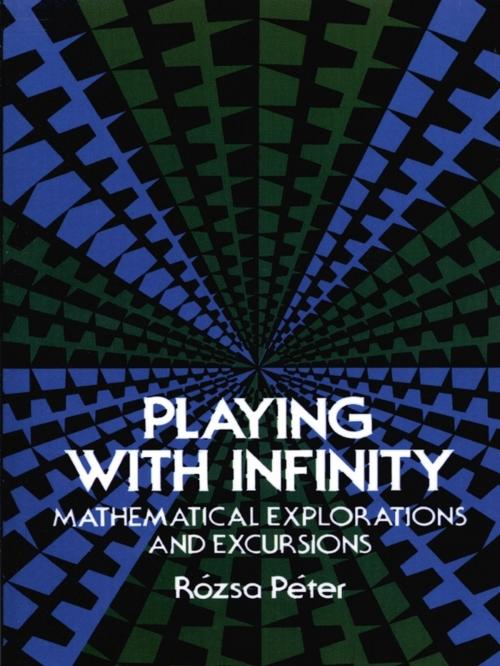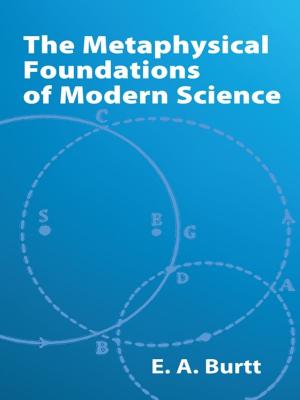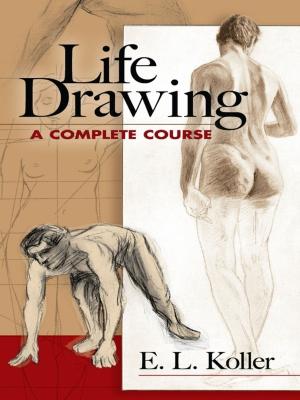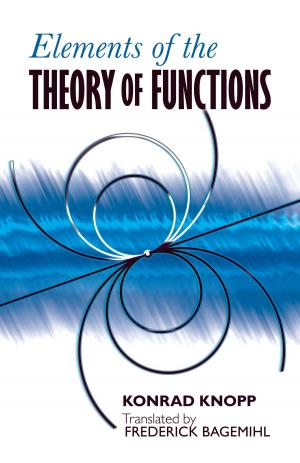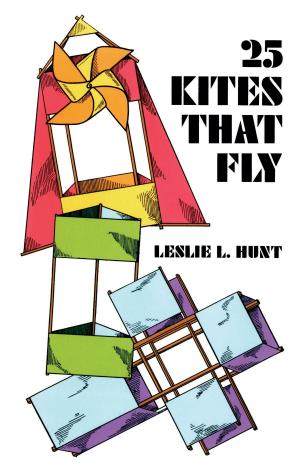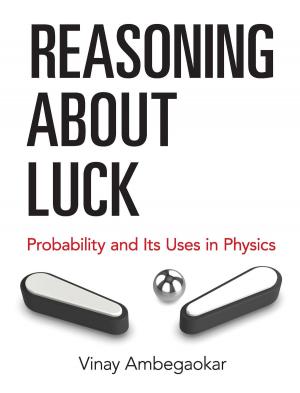Playing with Infinity
Nonfiction, Science & Nature, Mathematics, Logic, Science, Other Sciences, Applied Sciences, Applied| Author: | Rózsa Péter | ISBN: | 9780486150055 |
| Publisher: | Dover Publications | Publication: | April 4, 2012 |
| Imprint: | Dover Publications | Language: | English |
| Author: | Rózsa Péter |
| ISBN: | 9780486150055 |
| Publisher: | Dover Publications |
| Publication: | April 4, 2012 |
| Imprint: | Dover Publications |
| Language: | English |
This popular account of the many mathematical concepts relating to infinity is one of the best introductions to this subject and to the entire field of mathematics. Dividing her book into three parts — The Sorcerer's Apprentice, The Creative Role of Form, and The Self-Critique of Pure Reason — Peter develops her material in twenty-two chapters that sound almost too appealing to be true: playing with fingers, coloring the grey number series, we catch infinity again, the line is filled up, some workshop secrets, the building rocks, and so on.
Yet, within this structure, the author discusses many important mathematical concepts with complete accuracy: number systems, arithmetical progression, diagonals of convex polygons, the theory of combinations, the law of prime numbers, equations, negative numbers, vectors, operations with fractions, infinite series, irrational numbers, Pythagoras' Theorem, logarithm tables, analytical geometry, the line at infinity, indefinite and definite integrals, the squaring of the circle, transcendental numbers, the theory of groups, the theory of sets, metamathematics, and much more. Numerous illustrations and examples make all the material readily comprehensible.
Without being technical or superficial, the author writes with complete clarity and much originality on the whole range of topics from counting to mathematical logic. Using little algebra and no mathematical formulas, she has written an unusual book that will interest even mathematicians and teachers. Beginning mathematics students and people in the humanities and other fields will find the book particularly outstanding for their purposes.
This popular account of the many mathematical concepts relating to infinity is one of the best introductions to this subject and to the entire field of mathematics. Dividing her book into three parts — The Sorcerer's Apprentice, The Creative Role of Form, and The Self-Critique of Pure Reason — Peter develops her material in twenty-two chapters that sound almost too appealing to be true: playing with fingers, coloring the grey number series, we catch infinity again, the line is filled up, some workshop secrets, the building rocks, and so on.
Yet, within this structure, the author discusses many important mathematical concepts with complete accuracy: number systems, arithmetical progression, diagonals of convex polygons, the theory of combinations, the law of prime numbers, equations, negative numbers, vectors, operations with fractions, infinite series, irrational numbers, Pythagoras' Theorem, logarithm tables, analytical geometry, the line at infinity, indefinite and definite integrals, the squaring of the circle, transcendental numbers, the theory of groups, the theory of sets, metamathematics, and much more. Numerous illustrations and examples make all the material readily comprehensible.
Without being technical or superficial, the author writes with complete clarity and much originality on the whole range of topics from counting to mathematical logic. Using little algebra and no mathematical formulas, she has written an unusual book that will interest even mathematicians and teachers. Beginning mathematics students and people in the humanities and other fields will find the book particularly outstanding for their purposes.
